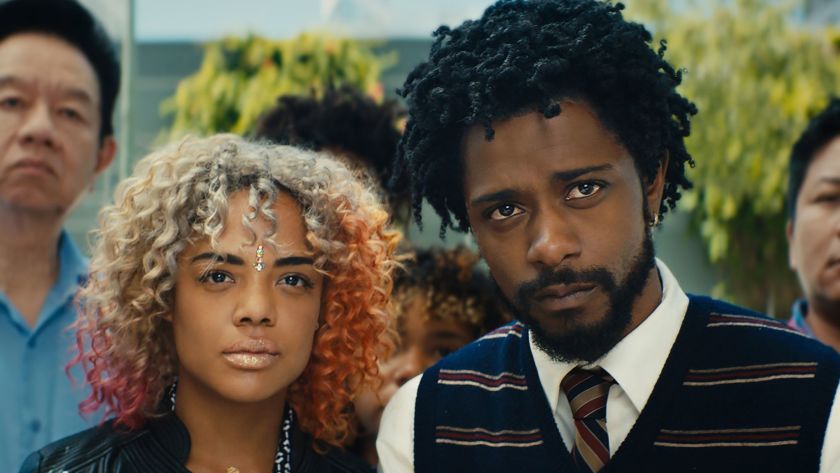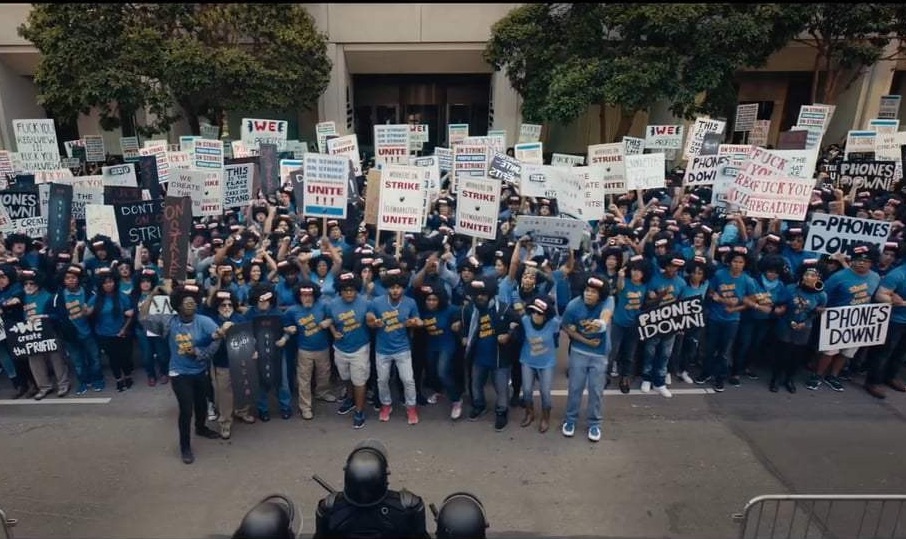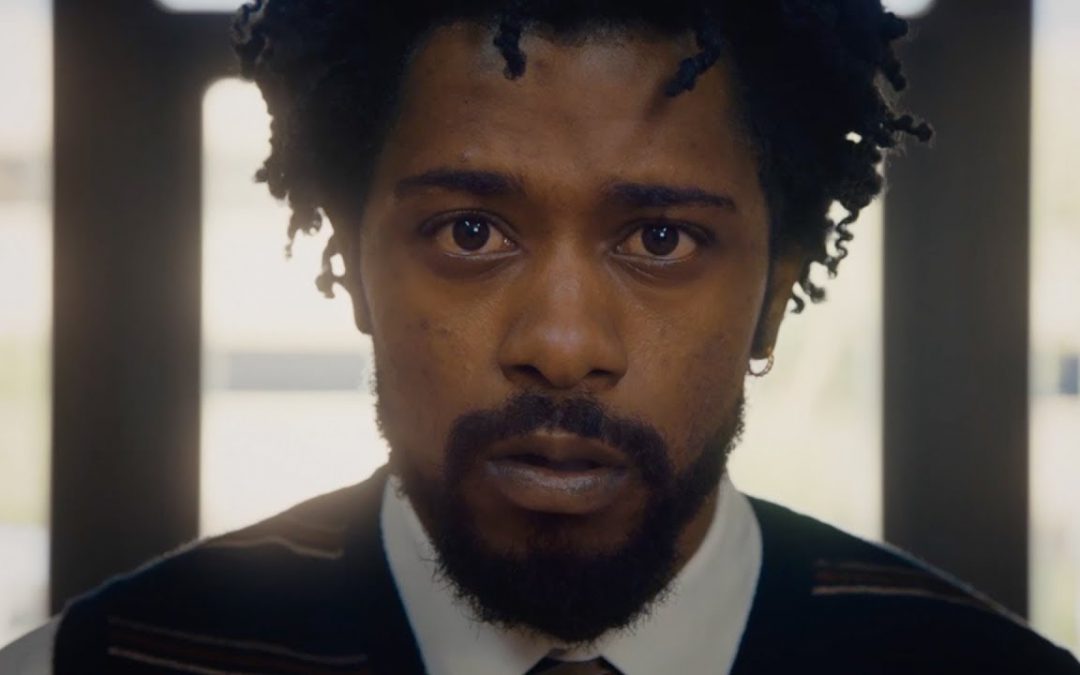A daring debut that takes deadpan comedy to its fullest and strangest extent, Sorry to Bother You tells the story of an ordinary man aiming to climb the corporate ladder. Director Boots Riley satirizes the struggle of work-life in contemporary America with his story of Cassius “Cash” Green (Lakeith Stanfield) and the dilemma he faces: to what extent should one do “what it takes” to get ahead? We will be showing Sorry to Bother You as a part of our Careers, Callings, and Conflicts film series on Friday, October 25th at 7 pm in Stark 103, Miller Auditorium. Please join us for this hit dark comedy and comments by our guest, Tyler Treptow-Bowman, from WSU’s Office of Inclusion and Diversity.

Tessa Thompson as Detroit and Lakeith Stanfield as Cassius in Sorry to Bother You
In his directorial debut, Riley uses comedic satire to create a hyper-submissive world where Americans are seemingly blind to how big businesses exploits them as workers. Hoping to to move out of his uncle’s garage to provide a better life for himself and his girlfriend Detroit (Tessa Thompson), Cassius “Cash” Green (Lakeith Stanfield) hebegins a job at a telemarketing company, Regal View. Cash makes little money from his job at first, leading him to adopt a “white voice” (not too unlike Spike Lee’s Blackkklansman). Cash begins to find immediate success with his white voice, but as the unrest for their poor working conditions at the office continues, Cash must decide between climbing the corporate ladder and the friends that have supported him along the way.
While Riley takes our existing corporate dysfunction to elevated levels of satire, Sorry to Bother You still offers some important messages to anyone striving for success in their career. Here are my career takeaways from the film:
Play to and understand your strengths. Early in the film Cash understand his ability and accuracy in his “white voice,” and the success it can provide him. It’s no coincidence that the most common question asked in a job interview is “what is your biggest strength?” Employers want to know how you will help grow and benefit the company. Saying you’re a team player is a good answer, but it’s hollow without an explanation of why and how that is a benefit. Knowing what areas you are strong in will help you know what career to aim for and how to explain to an employer why you’re the best fit for the position.
The value of friendship vs money. I know, that sounds very corny. However, Sorry to Bother You does make an important case as to the importance of friendship in one’s career. All the money in the world can make you happy to a point. What good are wealth and success if it is to be celebrated alone, after all. When climbing the corporate ladder, it can be easy to forget the people that supported you on your way up. Realizing the value in these people will help you stay grounded and appreciate the success you have.

Regal View employees protesting
Unions are there to help you! The film features a common theme of unionizing for change in their workplace. Unions can help create positive change in any workplace. They can create a higher, livable wage for workers. Provide benefits like health insurance and paid maternity or paternity leave for new parents. A union can also give workers a voice by allowing them to speak to a union representative instead of contacting human resources, which is a part of the company, and not a part of the workforce. Finally, a Union can help create change through collective bargaining, putting more pressure toward the company for change as the entire workforce can agree to push for it.
Director Boots Riley has certainly had to consider these messages in his career in Hollywood. Riley began his career in music with the band The Coup in 1991. The music of the Coup often makes commentary on political and social issues. Despite the band finding success, they have managed to stay close through the highs and lows of success and near-death run-ins. Hollywood also has no shortage of unions either. From the American Society of Composers, Authors and Publishers to the Directors Guild of America, Hollywood is committed to fair working conditions for those in front of and behind the camera.
Those conditions are far from equal, however. In particular, African American directors have to work harder to get their films and distributed to mainstream audiences. In 2018 films like Black Panther, directed by Ryan Coogler, and BlackKlansman, written and directed by Spike Lee (also putting an emphasis on the “white voice”) have found success in reaching mainstream audiences, as well as the attention of the Academy. However, this success is but a small fraction of the “mainstream” films of 2018.
Sorry to Bother You speaks to one’s career readiness, as well as the conflicts and callings one might face in their career. Although Riley’s film is darkly satirical and frequently explicit, its satire drives home the importance of moral integrity, self-knowledge, and–surprisingly–union representation.
Sorry to Bother You will be showing at 7 pm in Miller Auditorium, Stark 103 on Friday Oct. 25. For more updates on the rest of the film screenings, including upcoming films and dates, follow Winona State Film Studies on Facebook! We are all excited to see you there!
Admission is free and the film is open to the general public. The film is rated R for pervasive language, some strong sexual content, graphic nudity, and drug use.


Trackbacks/Pingbacks